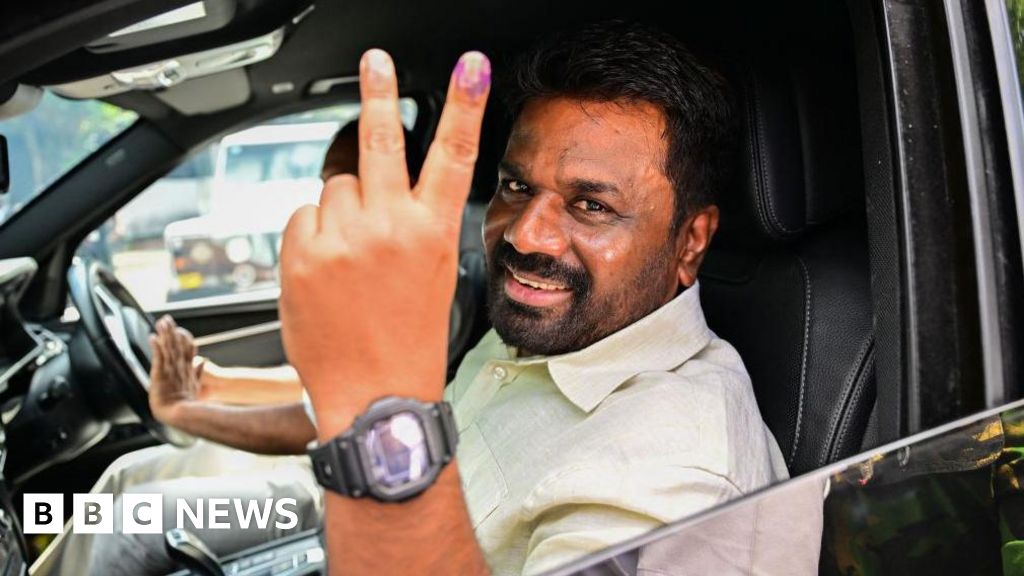According to 2024 Sri Lanka elections news, the NPP coalition secured majority winning 159 out of 225 seats in parliament. This constitutes a two-thirds majority and is a contrast to its performance in the outgoing assembly, where the party held just three seats.
With 63% of the votes counted, the NPP established an unassailable lead.

Also Read: Latest Paris Protest News: Protests Erupt Over Pro-Israel Gala and France-Israel Match
Anura Kumara Dissanayake has gained the public’s trust through his anti-corruption agenda and promises of economic revival.
Having been an MP for 25 years, Anura Kumara Dissanayake’s tenure has been by his ability to connect with ordinary citizens and distance himself from establishment politics.
According to 2024 Sri Lanka elections news, the JVP, the main constituent of the NPP had a past involving two violent insurrections. However, under Anura Kumara Dissanayake’s leadership, the party has transitioned into a powerful political force.
Sri Lanka’s worst economic crisis in 2022 characterized by soaring inflation, shortages of food and fuel and public unrest was a turning point.
The crisis led to the ousting of Gotabaya Rajapaksa and created fertile ground for political change. The economic hardships remain an issue, with the number of people living below the poverty line rising to 25.9% over four years.
Public dissatisfaction with previous governments provided the NPP with an electoral advantage.
Anura Kumara Dissanayake called for snap elections shortly after becoming president to secure a parliamentary majority aligned with his reform agenda.
Anura Kumara Dissanayake addressed the need for a government that truly represented the people’s will, describing the election as a moment for Sri Lanka’s future.
Voters expressed a strong desire for new leadership with many citing frustration with previous rulers who were blamed for economic mismanagement and corruption.
According to 2024 Sri Lanka elections news, Voter turnout was lower than expected, at just under 70% compared to nearly 80% in the presidential elections.
Three election workers lost their lives due to illness while on duty. The Election Commission reported no incidents of violence.
The NPP’s two-thirds majority provides a strong mandate to implement sweeping reforms including efforts to recover stolen assets and ensure fiscal discipline.
Anura Kumara Dissanayake has chosen to adhere to the $2.9 billion IMF bailout agreement negotiated by his predecessor.
The NPP’s victory is a clear break from the dominance of political families like the Rajapaksas, who have controlled Sri Lanka’s politics for nearly two decades.
Also Read: Latest New Zealand News: Luxon Apologizes for Abuse in State and Church Care
It was founded on leftist and anti-corruption principles, the NPP has brought a fresh narrative to a country weary of political elites.
A major focus is combating corruption and recovering stolen assets. With Sri Lanka recovering from a financial meltdown, alleviating poverty and managing inflation are at the forefront of Anura Kumara Dissanayake’s agenda.
For the first time, the Tamil-dominated northern provinces including Jaffna, voted for a Sinhala-Buddhist party like the JVP which leads the NPP coalition.
According to 2024 Sri Lanka elections news, the NPP secured seats in Tamil and Muslim regions such as Vanni and Batticaloa. Traditional Tamil and Muslim political parties faced losses.
Managing Sri Lanka’s debt crisis and implementing the $2.9 billion IMF bailout will test the new government.
Historically with China, the NPP must navigate its relationship with India, which played a role in providing $4.5 billion in aid during Sri Lanka’s financial crisis.
The NPP’s strong performance in Nuwara Eliya and Jaffna shows its ability to address the concerns of minority communities traditionally ignored by mainstream parties.
While the NPP opposes implementing the 13th Amendment, which devolves power to Tamil regions, Dissanayake has addressed a broader framework for unity.
According to 2024 Sri Lanka elections news, Around 17 million voters participated with 65% turnout, a decline compared to previous elections. The NPP achieved a two-thirds parliamentary majority, the first under the proportional representation system.
Also Read: Shigeru Ishiba News: Japan’s PM Re-elected Despite Election Loss



)